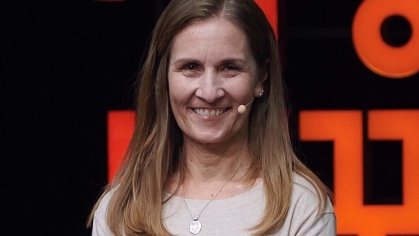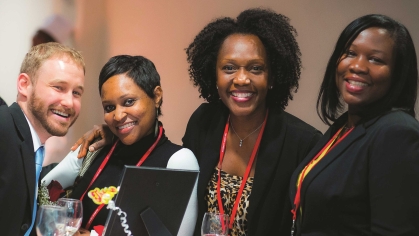By: Shreya Gupta
We recently had the opportunity to speak with alum Miguel Williams MSW'20 about his experience as an Intensive Weekend student at Rutgers School of Social Work and his current work with the state government.
What brought you to the field of social work?
Helping others has always been an important aspect of my life. Growing up, my parents would always welcome others into our home whenever they lost power during storms or assist them through other hardships. My mother would cook them meals and my father would assist them with anything they needed to get done. Upon completing my undergraduate studies in criminal justice from The Richard Stockton College of New Jersey (now known as Stockton University), earning a Master's degree in human services, and gaining experience in the field, I learned about social work, and the values my parents instilled in me was given a name.
Why did you choose to enroll in the Intensive Weekend program at Rutgers School of Social Work?
When I was undergoing training for my role at a care management organization, I saw that a lot of it was sponsored by Rutgers and many of the trainers were from Rutgers. Seeing that the university set the standards for social work in the state, I decided that Rutgers School of Social Work would be the best place to obtain my MSW.
I had heard about the Intensive Weekend program from a co-worker, who had a similar workload as mine, and said that it was conducive to her schedule. She mentored me and helped me get acclimated to the program. The Intensive Weekend program allowed me to focus on one class for an eight-week period as opposed to the traditional path, where I would be taking four to five classes at once. Overall, it helped me strike a balance between my job and furthering my education.
What are you currently doing for work?
Currently, I am working for the state government after leaving my role at the care management organization where I worked for five years. My current position is a research and reform specialist for the New Jersey Juvenile Justice Commission. In my role I get to utilize data to inform policy and practice changes to better serve justice-involved youth. I am especially enthusiastic about my work because I am able to bridge all of my interests together - criminal justice, social work, and human services. Despite being a remote position, I’ve learned a lot about working with disenfranchised populations at the macro level.
How has the COVID-19 pandemic impacted your career?
When the COVID-19 pandemic hit, the state government was focusing its efforts towards alleviating it, and therefore, I experienced a waiting period of over a year to start my current job. I had accepted the offer in November 2019, but was unable to start until January 2021. I was excited about my new role, but I was also worried about whether or not the government would still have enough resources to sponsor my position and experienced uncertainty about my start date.
How do you balance the demands of your professional and personal lives?
Self-care is a buzzing topic in the field of social work, and it is especially important during the tumultuous time we find ourselves in now. When working at home, it can be difficult to create the boundary between work and relaxation. Some activities that I enjoy indulging in are yoga, communicating with my network and friends, listening to music, and staying busy with my two dogs.
What do you think are some of the most pressing issues in the field of social work that need to be addressed?
The current COVID-19 pandemic is definitely at the forefront of the issues the field of social work is facing right now, as it has unveiled many underlying problems that need to be tackled. I always look at things from a social justice perspective, and I feel there are many areas we need to improve. We need to learn about the ways in which we can address it, how we can deliver it in an equitable way, and how to amplify marginalized voices.
How do you feel about the future of social work?
I am optimistic about the direction the field of social work is heading. My graduating MSW class entered in-person but left remotely, and I feel as though we are all more prepared than we will ever be. COVID-19 has instated the importance of technology in our work, with people becoming well-equipped with platforms like Zoom, Microsoft Teams, and tele-health software that we were completely unaware of before the pandemic. With these new skills, I think social workers are empowered with the tools they need to navigate the ever-changing world we find ourselves in.
Last month was Social Work Month, and this year’s theme was “Social Workers are Essential.” What does this theme mean to you?
This year’s theme highlights the importance of the field of social work to me. Social work is often a forgotten field, yet arguably one of the most important. In this pandemic, medical professionals were serving on the frontlines, but people often forget that social workers also have roles in hospitals and other healthcare settings. I am glad that social workers are getting the recognition they deserve because they are often not spotlighted as they do this work because of a deep passion for the profession.



